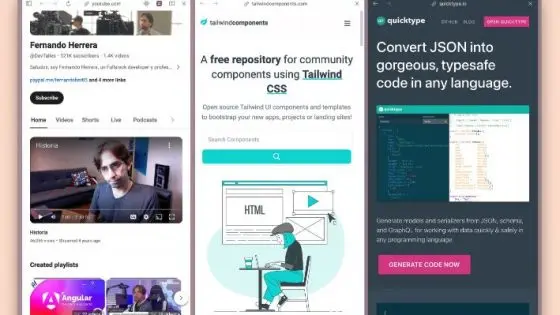According to more than half of the companies in the catering and accommodation sector, digital transformation is not essential

More as two fifths of companies paid for online advertising
In hospitality and accommodation activities (I55 according to SKD 2008), in 2023, 66 % employees and self-employed persons had access to the Internet for official purposes (in EU-27: 51 %). The largest share (37 %) of companies in this activity used fixed Internet connections with the highest contractually guaranteed speed of at least 30, but less than 100 Mbit/s. At 17 %, this value was 1 Gbit/s or more.
Digitization of tourism is important for increasing added value and its sustainable transformation. Data and its use also play a key role – for making decisions and developing new services.
Companies with 10 or more employed and self-employed, active in the observed activities, also used the Internet for the following purposes in 2023:
- 90 %s had a website (in EU-27: 94 %s). 31 % advertised vacancies on it or made it possible to submit job applications electronically. At 71 %, the content on the website was available in more languages.
- 80 % companies had a profile on social media (in EU-27: 85 %): 80 % on social networks (e.g. Facebook, LinkedIn), 55 % on websites for sharing multimedia content (e.g. YouTube, Instagram, TikTok, Snapchat) and 5 % blog or microblog (eg X, Blogspot). 67 % companies used social media to develop the overall image of the company or to market products or services.
- 44 % companies paid for online advertising, e.g. advertisements on internet search engines, social media (e.g. on Google, Facebook, YouTube) or on other websites. 42 % used a method based on the content of the website or searched keywords (contextual advertising), 30 a % method based on tracking the geolocation of Internet users, and 17 a % method based on tracking past activities. or internet user profile.
Employees most often performed data analytics on data from transaction records
Cloud computing services were rented by 38 % companies (in EU-27: 46 %). 30 % leased security software (antivirus, VPN), 27 % office software (word editor, spreadsheet), 26 % e-mail, 19 % file storage (all types of files, copies of company files) and financial accounting software and 16 % company database hosting services.
Digitization of business processes and use of data:
- A fifth of companies used an ERP (Enterprise Resource Planning) software solution to exchange information between different work areas (in EU-27: 36 %).
- 14 %s used customer relationship management (CRM – Customer Relationship Management) software (in EU-27: 35 %s).
- In 13 % companies, employees performed data analytics (in EU-27: 34 %). In the case of 13 % companies, this was based on data from transaction records (data on sales, payments, e.g. data from ERP, online sales), 11 % performed analytics on customer data (e.g. data on customer purchases, about their location, preferences, given opinions or searches) and 5 % on data from social media.
- 4 % companies used business intelligence (BI) solutions (in EU-27: 16 %).
Lack of knowledge in the company among the main reasons for not using artificial intelligence technologies
3 % of companies used artificial intelligence (AI) technologies (in EU-27: 6 %). The most commonly used UI technology was to recognize objects or people based on an image, e.g. product, fingerprint, face, object recognition (3 %). UI was most often used for the protection and safe use of information and communication technology (80 % companies that used UI).
Among the companies that do not use UI (97 %), 11 % have already considered the possibilities for its use. Among their most common reasons for non-use, they all cited: lack of appropriate knowledge in the company, incompatibility with existing software or systems, concerns regarding the violation of data protection and privacy, and unclear legal consequences, e.g. regarding liability for damage caused by the use of artificial intelligence. 94 % cited problems with the availability or quality of the necessary data, 56 % ethical concerns, and half cited excessive costs. 44 % companies consider that UI technologies are not useful for them.
More revenue generated by bookings through online booking platforms than through your own website
In 2022, 56 % companies in the I55 activity generated revenue from online sales – reservations received via the Internet (in EU-27: 72 %): 44 % via own or parent company website (in EU-27: 63 %) and 54 % via online booking platforms (in EU-27: 61 % ).
In 2022, companies generated 14.2 % of their revenue (excluding VAT) through online sales: 7.0 % through their own or parent company's website and 7.2 % through online booking platforms. 5.0 % of revenue was generated with reservations received from Slovenia, 6.8 % from EU member states and 2.4 % from other countries.
More as half of the companies think that digital transformation is not essential for successful business
In 2023, almost three-quarters of companies in the hospitality and accommodation industry encountered various problems in the digital transformation of operations (72 %).
At 51 %, it was not possible to quickly adapt to changes in the environment, e.g. it was not possible to experiment with the use of digital technologies, 49 % companies lack financial resources, 46 % companies lack appropriate personnel or skills in this field, or the leading personnel responsible for key processes have insufficient knowledge of digital capabilities technologies. In 43 % companies, business processes within the company are not connected.
More more than half (56 %) of the companies considered that digital transformation is not essential for the successful operation of the company.
Among employees in the hospitality industry, those with basic digital skills dominate
In 2023, 47 % persons aged 16– years had at least basic digital skills. There were 52 % employees among those employed in the field I Hospitality (I55 and I56 according to SKD 2008) (in EU-27: 58 %). In 21 %, most of these skills were very well developed (in EU-27: 26 %), 31 % had basic ones (in EU-27: 32 %), 23 % were deficient (in EU-27: 20 %), 14 % modest (in EU-27: 12 %) and 3 % very modest digital majority (in EU-27: 5 %). 8 % employees in this field were without digital skills (in EU-27: 5 %).



























